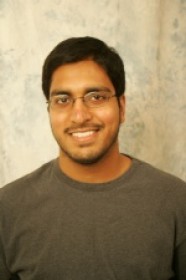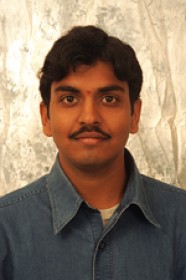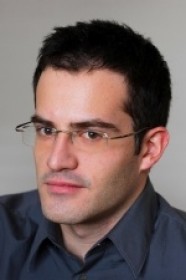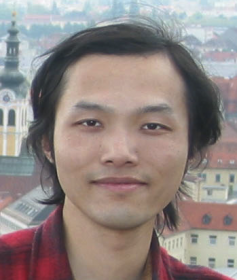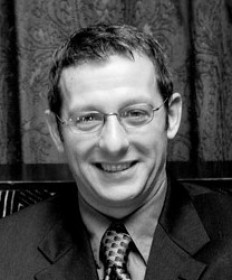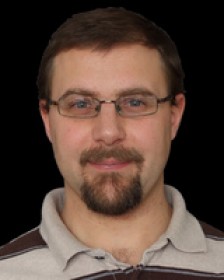Distributed Planning Under Uncertainty for Large Teams
Event Location: NSH 1305Abstract: In many domains, teams of hundreds of agents must cooperatively plan to perform tasks in a complex, uncertain environment. This requires that each agent take into account teammates' states, observations, and actions when making decisions about its own actions. Naively, finding a good policy involves searching this large joint space, but [...]
Vision-Based Control of a Handheld Micromanipulator for Robot-Assisted Retinal Surgery
Event Location: NSH 1507Abstract: Surgeons increasingly need to perform complex operations on extremely small anatomy. Many existing and promising new surgeries are effective, but difficult or impossible to perform because humans lack the extraordinary control required at sub-millimeter scales. Using micromanipulators, surgeons gain higher positioning accuracy and additional dexterity as the instrument removes tremor and [...]
Context and Subcategories for Sliding Window Object Recognition
Event Location: NSH 3305Abstract: Object recognition is one of the fundamental challenges in computer vision, where the goal is to identify and localize the extent of object instances within an image. The current de facto standard for building high-performance object category detectors is the sliding window approach. This approach involves scanning an image with a [...]
Lifelong Robotic Object Recognition
Event Location: NSH 3305Abstract: In this thesis, we study the topic of Lifelong Robotic Object Perception. We propose, as a long-term goal, a framework to recognize known objects and to discover unknown objects in the environment as the robot operates, for as long as the robot operates. We build the foundations for Lifelong Robotic Object [...]
Learning Local Image Descriptors for Recognition, Scene Labeling and Grouping
Event Location: NSH 1305Bio: Xiaofeng Ren is a research scientist at Intel Labs and an affiliate assistant professor at the University of Washington. His research interests are broadly in the areas of computer vision and its applications, including image features, grouping and segmentation, object recognition, and video analysis. His current focus is on understanding and [...]
Carnegie Mellon University
Cognitive factors in neural prosthetic control
Event Location: NSH 1305Bio: Steven Chase is an Assistant Professor jointly appointed in the Center for the Neural Basis of Cognition and the Department of Biomedical Engineering at Carnegie Mellon University. He received his BS in Applied Physics from Caltech in ‘97, his MS in Electrical Engineering from UC Berkeley in ‘99, and his PhD [...]
An Egocentric Paradigm for Understanding Daily Activities
Event Location: NSH 1507Bio: Alireza Fathi is a PhD candidate at the College of Computing at Georgia Tech, graduating in Spring 2013. He has received his bachelors degree from Sharif University of Technology in Iran in 2006, and his MSc degree from Simon Fraser University in Canada in 2008. His main research areas are computer [...]
Understanding the 3D World from Images
Event Location: NSH 1305Bio: Silvio Savarese is an Assistant Professor of Electrical and Computer Engineering at the University of Michigan, Ann Arbor. After earning his Ph.D. in Electrical Engineering from the California Institute of Technology in 2005, he joined the University of Illinois at Urbana-Champaign from 2005 - 2008 as a Beckman Institute Fellow. He [...]
Modeling Social Reasoning through Recursive, Decision-Theoretic Planning
Event Location: NSH 1305Bio: David Pynadath is a Research Scientist at the Institute for Creative Technologies at the University of Southern California. His research has focused on developing an artificial intelligence framework that can model, simulate, and analyze social interaction, with special emphasis on the methods by which agents, both human and software, form and [...]
Visual Topometric Localization
Event Location: NSH 1305Bio: Hernan Badino received his PhD degree from the J. W. Goethe Frankfurt University, in 2008. Dr. Badino has worked on vision based environment perception for driver assistance systems during his PhD at Daimler AG, in Stuttgart, Germany. He joined the Robotics Institute in 2009 as a post doctoral researcher where he [...]
